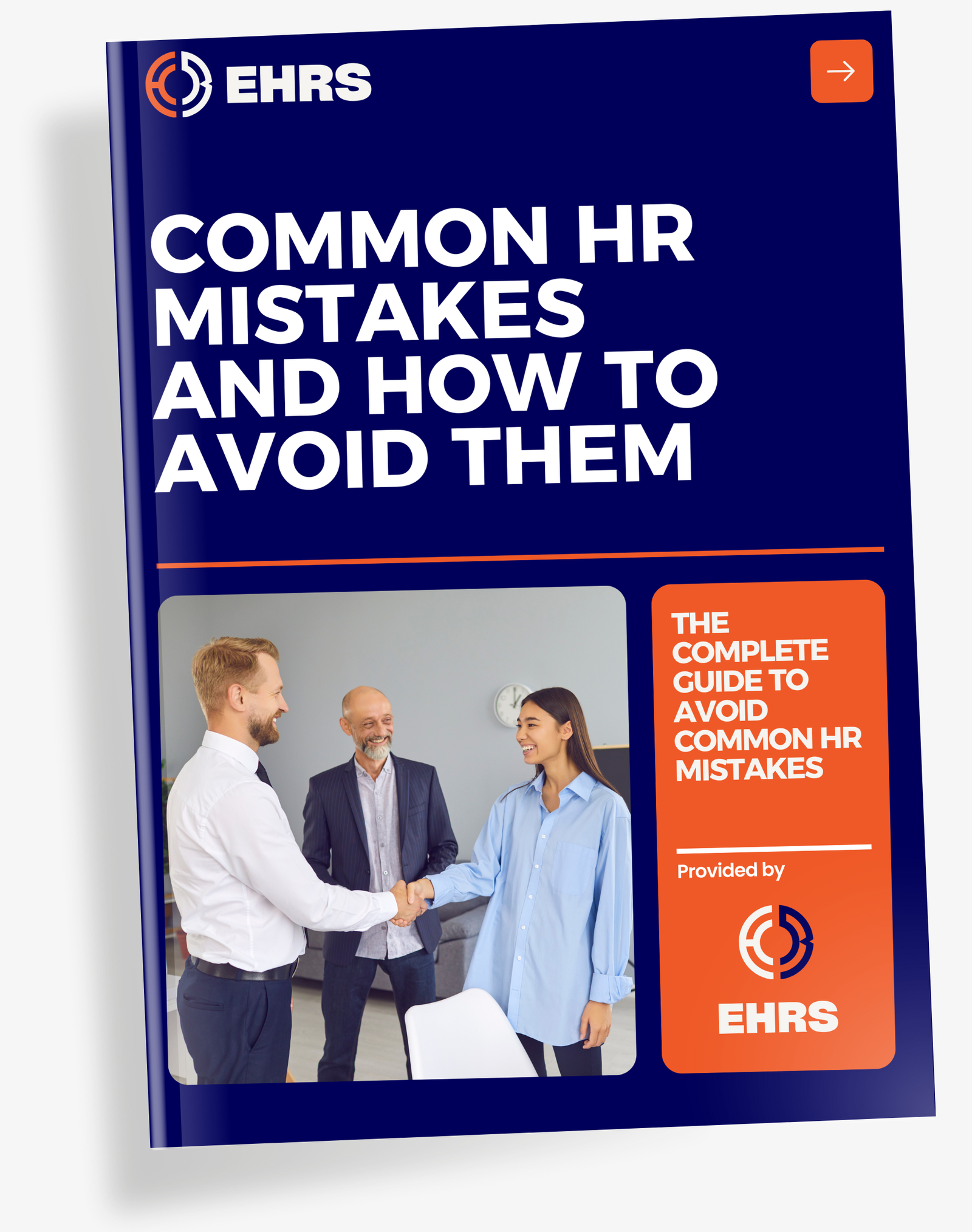Is managing payroll in Romania leaving foreign employers overwhelmed by complex tax codes, social security obligations, and strict compliance deadlines?
This guide breaks down the essentials—from the 10% flat income tax to mandatory employee and employer social contributions (35% and 2.25%)—while clarifying critical steps like registering with ANAF, handling REVISAL employee records, and meeting D112 reporting deadlines (due by the 25th of the following month).
Learn to navigate sector-specific minimum wages, statutory leave policies, and cross-border payment challenges, or use Employer of Record solutions to streamline payroll in Romania while avoiding penalties for late submissions or miscalculations.
Understanding the core components of payroll in Romania
Managing payroll in Romania requires precise knowledge of tax rates and social contributions. Employers must navigate a flat income tax system alongside mandatory social security obligations for employees. Non-compliance risks penalties, making it critical for foreign companies to grasp these fundamentals before operating in the Romanian market.
The flat income tax rate
Romania applies a flat income tax rate of 10% on gross salaries, effective in 2025. This rate covers salaries, bonuses, and fringe benefits, simplifying calculations. Employees in R&D, construction, and IT may qualify for exemptions under specific conditions. For example, R&D professionals whose roles align with qualifying criteria—such as applied research or technological development—can access income tax exemptions. Similarly, IT specialists in designated tech hubs, like Bucharest or Cluj-Napoca, might benefit from regional incentives tied to innovation zones.
Employers must withhold this tax at source, following ANAF regulations. KPMG’s 2025 tax guide confirms these rules apply broadly, though sector-specific adjustments may occur. For instance, temporary tax reductions for construction sector employees aim to boost infrastructure projects, reflecting government priorities.
Social security contributions: employee and employer obligations
Romanian payroll includes mandatory social security contributions split between employees and employers. These funds support pensions, healthcare, and unemployment programs. Below is the 2025 breakdown:
Romanian Social Security Contributions Breakdown (2025)
| Contribution Type | Employee Rate | Employer Rate | Notes |
| Social Insurance (Pension – CAS) | 25% | 4% or 8% | Applies to gross salary. Employer rate varies for special working conditions. |
| Health Insurance (CASS) | 10% | 0% | Calculated on gross salary. |
| Work Insurance Contribution (CAM) | 0% | 2.25% | Calculated on gross salary. Covers workplace injury compensation and unemployment support. |
| Total Employee Contribution | 35% | ||
| Total Employer Contribution | 2.25% | Standard conditions apply. |
These contributions fund pensions (CAS), healthcare (CASS), and unemployment support (CAM). Employers pay CAM (2.25%) monthly, while employees bear 35% total deductions. PwC’s analysis highlights strict monthly reporting deadlines: submissions must occur by the 25th of the following month to avoid penalties like interest on overdue payments or audits.
Special conditions, such as hazardous work environments, may increase employer CAS contributions to 8%. Industries like mining or heavy manufacturing often fall under these conditions. Employers must also submit the D112 tax form monthly, consolidating all payroll obligations into a single declaration for ANAF compliance, ensuring alignment with evolving regulatory standards.
Setting up your payroll process and ensuring compliance
Running payroll in Romania requires strict administrative adherence. Foreign employers aren’t always obligated to establish a local entity, but creating a SRL (Romanian LLC) with a minimum capital of €40 streamlines compliance and reduces operational friction. A local presence ensures smoother interactions with authorities like ANAF (tax) and ITM (labor inspectorate).
Initial registration and setup
Before hiring, employers must complete mandatory procedures:
- Register with ANAF: Obtain a fiscal ID and submit documents like company registration certificates and legal representation proof. Foreign companies may need apostilled documents.
- Register with ITM: Mandatory before onboarding employees. This ensures compliance with labor laws and occupational safety standards.
- Activate REGES-ONLINE access: The 2025 replacement for REVISAL requires real-time updates. Registration uses RoEID (24hr validation) or digital signatures. Foreign employers must provide notarized powers of attorney.
These steps create a legal framework for payroll operations and regulatory alignment.
Monthly reporting and deadlines
Romanian employers file the D112 declaration, consolidating 10% income tax, 25% employee pension contributions, 10% health insurance, and 2.25% employer unemployment insurance. Submit and pay by 25th of the following month via ANAF’s e-declaration portal. Late submissions trigger 0.05% daily interest and fines up to €21,000 for repeated violations. Small employers may qualify for quarterly filings under specific revenue thresholds.
Understanding payroll compliance risks helps avoid penalties from misclassification or miscalculations. For example, misclassifying employees as contractors could lead to retroactive contributions and fines.
Record-keeping requirements
Romanian law mandates long-term preservation of employment records. Maintain:
- Employment contracts (in Romanian, with English clauses for foreigners)
- Detailed salary records (gross amounts, deductions)
- Termination documents with legal justification
- Work time records and medical certificates
Employers must update REGES-ONLINE within tight deadlines: 24hr before employment starts, 1 business day for job changes, and 20 days for terminations. Non-compliance penalties reach €4,210 per violation. Employers must also retain physical records for audits and provide copies to employees on written request, as mandated by labor inspections.
Understanding Wages, Leave, and Termination in Your Payroll
Minimum Wage and Remuneration
Romania’s national minimum gross wage increased to 3,700 RON (approximately 740 EUR) in July 2024. Sector-specific minimums apply, such as 4,582 RON for construction workers and 3,436 RON for agriculture and food industry employees.
Overtime regulations state that employees cannot work more than 48 hours weekly, including overtime. Compensation requires either paid time off within 60 days or a 75% premium on base salary. Workers under 18 are prohibited from overtime, with stricter limits of 6 hours daily and 30 hours weekly.
- 13th-month salary: Not mandatory under Romanian law but may be included in employment contracts or collective agreements.
Statutory Leave and Public Holidays
Romanian labor law mandates specific leave entitlements, directly impacting payroll calculations. Employers must account for these when managing employee compensation.
- Annual leave: Minimum of 20 working days per year, prorated for new hires.
- Public holidays: 15 official holidays in 2024, including New Year (Jan 1-2), Orthodox Easter (May 3-6), Labor Day (May 1), and National Day (Dec 1). Work on public holidays requires double pay or compensatory time off.
- Sick leave: First 5 days paid by employer at 75% of average salary; beyond that, covered by FNUASS. For severe illnesses like tuberculosis, compensation increases to 100% of salary.
- Maternity leave: 126 days (63 pre- and 63 post-birth), fully funded by social security at 85% of average income. Employers handle administrative procedures but receive reimbursement from the government.
- Paternity leave: 5 fully paid days post-birth, extendable to 15 days if attending childcare courses.
Termination of Employment
Employment termination in Romania requires adherence to strict notice periods and documentation protocols. Employers must understand legal obligations to avoid disputes.
- Notice periods: Minimum 20 working days for dismissals due to health, performance, or layoffs. For executives (mandatari), notice periods depend on contractual agreements.
- Severance pay: Not legally required but common in business closures or post-restructuring scenarios, often equivalent to one month’s salary.
- Documentation: Employers must provide a work certificate and final salary settlement within 3 business days.
Employees are protected from dismissal during maternity leave, long-term illness with medical proof, or military service. Unlawful termination can result in reinstatement and back-pay liabilities.
International payroll considerations and best practices
What is a good salary in Romania?
Romania’s minimum wage is 4,050 RON monthly. However, market-competitive salaries for skilled professionals in sectors like IT or finance often exceed 10,000 RON, driven by demand for expertise. The 2024 average salary is 9,010 RON (2,002 USD), rising to 9,770 RON in Bucarest. Regional hubs like Cluj-Napoca and Timișoara also show higher averages due to tech industry growth.
Urban living costs, particularly housing and utilities, significantly influence compensation strategies. For instance, a software engineer in Bucarest with 2–5 years of experience earns 7,000–8,500 RON, while entry-level roles start at 5,000 RON. The EU’s Pay Transparency Directive, effective by 2026, mandates reporting gender pay gaps exceeding 5%. Deloitte advises preemptive salary benchmarking to meet compliance and attract top talent.
Options for foreign employers
- Local entity setup: Creating an SRL (limited liability company) offers full control but requires local directors, registered office space, and adherence to Romanian labor laws. This route suits long-term investments but involves high administrative costs and time for legal formalities.
- Employer of Record (EOR): Licensed providers like Boundless act as the legal employer, managing payroll, HR, and compliance. This model is ideal for short-term market testing, though it requires a temporary agency license in Romania, unlike EOR structures in other countries. We don’t recommend this option if your expanding in multiple countries or for a long-term solution.
- Local payroll outsourcing: Retains employer status while delegating tax calculations and social contributions to specialists. This option supports tailored benefits like meal vouchers or supplementary health insurance, ensuring alignment with local norms. We recommend this solution if you want to avoid penalties and expand in the best way possible.
For streamlined compliance, explore comprehensive HR outsourcing solutions to navigate tax filings and real-time legislative updates, reducing administrative burdens.
Final check: navigating cross-border payments
Salaries in Romania must be paid in RON, requiring foreign employers to manage currency conversion. Cross-border transfers face challenges like 1–3% banking fees, 2–5 business-day delays, and documentation hurdles, such as tax residency certificates for certain payments.
Specialized providers ensure compliance with social contributions (25% CAS, 10% CASS) and employer obligations (2.25% CAM). For example, platforms like Safeguard Global automate multi-currency settlements to reduce manual errors. Non-compliance risks penalties up to 8,000 RON for late reporting or undeclared employees. Engage local experts to align with evolving labor laws and avoid financial exposure, especially regarding Romania’s strict deadlines for submissions like the REVISAL payroll registry.
Managing payroll in Romania involves a 10% income tax and mandatory social contributions (35% employee, 2.25% employer). Strict compliance with registration, monthly D112 filings by the 25th, and thorough documentation is essential. Foreign employers can opt for local entities, EORs, or payroll providers to navigate regulations and cross-border payments. Prioritizing accuracy and local expertise ensures compliance and efficient payroll management.
We can help you with your payroll and warmly invite you to contact us to make sure you’re handling payroll in Romania in a fully compliant way.
Frequently Asked Questions (FAQ)
How Are Workers Compensated in Romania?
Employees in Romania typically receive salaries via bank transfers, the most common method. While cash payments are permitted, they are less frequent due to traceability requirements. Employers must ensure timely disbursement, often aligning with monthly cycles. Contracts may also allow for partial payments in foreign currencies, though the Romanian Leu (RON) remains the standard for local transactions.
What Payment Methods Are Standard in Romania?
Bank transfers dominate payroll processes, ensuring compliance with regulatory frameworks. Direct deposits into employees’ RON-denominated accounts are mandatory for local transactions. Credit or debit cards are occasionally used for supplementary payments, but formal payroll systems prioritize electronic transfers. Cash disbursements require strict documentation to meet auditing standards.
What Are Romania’s Payroll Tax Requirements?
Romania applies a 10% flat income tax on gross salaries for residents. Additionally, employees contribute 35% of gross income to social security (25% for pensions, 10% for healthcare). Employers pay 2.25% for work insurance (CAM) under standard conditions. Specific sectors, such as IT or R&D, may qualify for partial tax exemptions under strict criteria.
Is 15,000 RON a Competitive Monthly Salary in Romania?
A 15,000 RON monthly salary significantly exceeds the 2024 minimum wage of 3,700 RON. While average salaries vary by sector, this amount would be considered high in many industries, particularly outside major cities like Bucharest. However, purchasing power and cost-of-living disparities should be considered for accurate benchmarking.
What Portion of Income Do Romanians Typically Pay in Taxes?
Most employees contribute 35% of gross income to social security and 10% to income tax, totaling 45%. This includes mandatory deductions for pensions (25%), healthcare (10%), and work insurance (0%). Employer contributions add 2.25% for work insurance, though this may rise to 8% under special working conditions.
How Does Romania’s Currency System Function?
Romania uses the Romanian Leu (RON), subdivided into 100 bani or 1,000 lei. Banknotes circulate in denominations of 1, 5, 10, 50, 100, and 200 RON. Coins exist for smaller units. Foreign currencies like EUR or USD are not accepted for domestic payroll but can be exchanged through authorized institutions.
Which Banks Operate in Romania?
Romania hosts a mix of international and local banks, including Raiffeisen Bank, BRD (BNP Paribas subsidiary), ING Bank, and Banca Transilvania. Employers often partner with these institutions for payroll accounts. Foreign companies may use local banks or global providers with Romanian branches to streamline cross-border transactions.
Is USD Accepted for Payroll Transactions in Romania?
While USD is not legally recognized for domestic payroll, contracts may specify foreign currency payments under specific conditions. Employers opting for this must comply with foreign exchange regulations. For practicality, salaries are typically paid in RON to avoid conversion complexities and ensure adherence to local labor laws.
Is PayPal a Viable Option for Payroll in Romania?
PayPal operates in Romania but is unsuitable for formal payroll due to compliance limitations. Employers must use regulated banking channels for social security and tax reporting. PayPal might facilitate informal or freelance payments but cannot replace official payroll systems for permanent employees.





